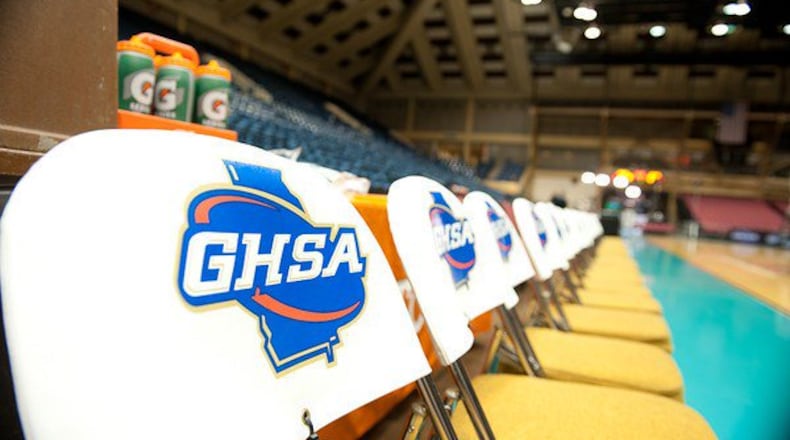Georgia hasn’t voted to allow high school players to profit from their name, image and likeness, yet, but the possibility has been discussed by players, coaches and GHSA leadership. A decision could be reached at an executive committee meeting this fall.
High school associations have approved NIL deals in 26 states.
“When I spoke about it the first time (to the board of trustees in January), I received a lot of feedback from coaches and member schools who were under the impression you’re paying someone to play high school sports,” GHSA Executive Director Robin Hines told Todd Holcomb of Georgia High School Football Daily in April. “That’s not the case. From most states that have adopted NIL rules, they keep amateur rules in place. They recognize that individuals own their own name, image and likeness and can endorse products on their own as long as they don’t include the intellectual property of the school or the state association.”
At its best, NIL deals make sense from a legal point of view. But as evidenced by how things have unfolded at the collegiate level, it can open a Pandora’s box of issues. Most top college programs have used NIL deals as recruiting tools for incoming freshmen and those coming from the transfer portals. That was not the original intent.
“When we’re ready to do something like (NIL), we want to make sure guardrails are in place,” Hines said.
And that’s what three coaches competing in the Corky Kell/Dave Hunter/Brent Key 7-on-7 Tournament at Georgia Tech emphasized: Guardrails must be in place.
Byron Slack, Cook football coach: “At the high school level, (NIL) is a tough deal. I would be concerned about the monitoring of it just by looking at what’s happening in college. There are the haves and have-nots of programs that are a little bit more influential in higher areas where they have the ability to get more money. It would just create haves and have-nots. Enough money could allow and pay for a person to move, and that gets back to the whole monitoring situation and ‘quote/unquote’ transfers. So that would be something that all the stakeholders involved with the rule-making would have to sit down and decide what they are going to do.”
Melvin Brown, Miller Grove football coach: “(The NIL) would take the innocence away from high school football. We watch what’s going on in college football now, with all that frenzy and stuff, and if it trickles down to high schools, it’d be a big mess. When you get to the college level, it’s a business, more than it is at the high school level. I tell my kids now, ‘enjoy high school football, this is fun. Because when you get to the next level, it’s all business.’ That trickles down to the high school athletes, and it takes all the energy away from high school football. And it could hurt inner-city schools that might not have the resources that other programs have. It’s just too lopsided at the high school level, and it would just take away from the innocence of the amateur game.”
Ryan Walters, Tift County football offensive coordinator: “I think (NIL) would be difficult because I think less about whether or not they’re deserving of the money. I mean, the players do generate a lot of interest in a lot of their schools, and the schools do make a lot of money off of that. I think there’s a whole host of other issues that you’d have to address first. Is this really like high school football? I was in Texas for four years before I came here, and the way that recruiting gets done here … I think mixing NIL into that makes it hard. Some of that kind of stuff at high school level, like regulating (a bona fide move) and all those kinds of things, (NIL) would create a whole other set of issues. I do think it would become a lot more like the college level, where it is clear (what schools) are offering what. I think there’s a time and a place maybe for some of the money because certainly there’s a lot of value that high school football players in Georgia give to their respective schools.”
Credit: AP
Credit: AP
About the Author

